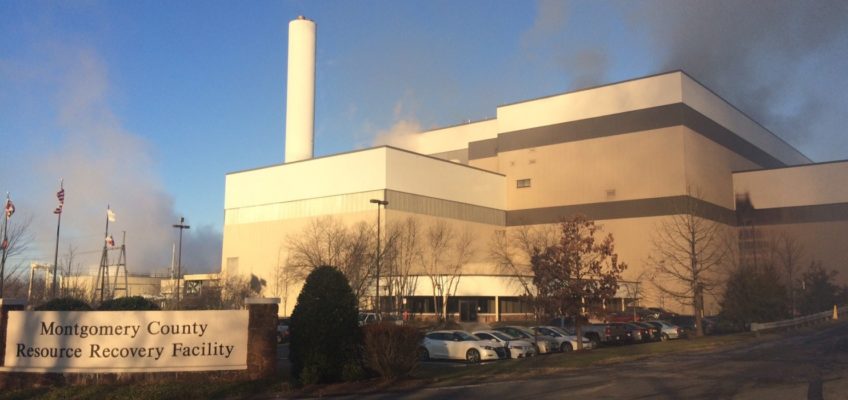Montgomery County’s garbage incinerator in Dickerson, Maryland, long-heralded as a model of success in the industry by incineration proponents, has not looked so successful in the last few months.
Montgomery’s residents and businesses have long been told that the garbage incinerator was technologically and economically a boon to the county. However, realities are setting in and a less rosy picture is emerging.
Taxpayers are entitled to quality service given that they have been paying a tax surcharge (called a service fee) for the incinerator since 1995. A non-incineration approach would have been more prudent. A recycling and composting and landfill protocol would have saved them all at least $100 million as compared to the price of the incinerator. This is the no-burn path that many cities and counties have taken in these 20 years instead of building and operating garbage incinerators.
At the Dickerson plant, serious operational problems have emerged.
“Records show 105 days of unscheduled outages between March and October of last year. Shutdowns last month and in July forced the county to find other destinations for about 55,000 tons of trash, officials said. The plant was fully in operation for just nine days in September and October.”
During this same period Covanta, the operator of the Dickerson, MD, plant, was also attending to fires at its new Durham (Ontario, Canada) garbage incinerator.
If these incidents become a trend, Montgomery County taxpayers will see increased taxes/service fees.





